|
International Retrospective: Krzysztof Kieslowski
Introduction
Master's Thesis
Movies
DRAMATURGY OF REALITY
(fragment of master’s thesis)
KRZYSZTOF KIESLOWSKI
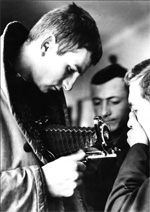
|
A rich, magnificent, immeasurable reality, either
nothing is repeated or we cannot redo the shots.
We do not have to worry about how it unfolds: it
will keep supplying us, day after day, with extraordinary
takes. Reality itself– and that's not a paradox
– is the starting point for a documentary. You
only need to believe in it from the very beginning,
in its dramaturgy, in this reality.
André Bazin wrote that at times the cinema does
not find any stimuli in technological inventions –
when it is not the screen width or the colours of
picture, which decide about development of its
means of expression, and when the mere fact of
movement or sound ceases to fascinate – the cinema
refers to literature. He did not mean any film
topics or characters – he meant language, as well
as structural and dramaturgic patterns.
Documentary film, already weary and destroyed by
its language, should reach to the reality, and look
for dramaturgy, action, and style in it. It should create
a new language resulting from more precise
that hitherto existing record of reality. The point
here is to make a step, which will be a consequence
of all manifests wrote by documentary filmmakers,
a consequence of Flaherty’s statement that a
camera is a tool of creation.
An element of action, surprise, punch line – so
important in classical dramaturgy; an element of
suspension and non-denouement of unordered
threads – so meaningful in contemporary dramaturgy
– all these elements are not made up,
but they constitute an attempt to imitate (variedly
seen) the reality. The point is to cease imitating
it and pretending, but take it as it is. Just
with its lack of punch lines, its concurrent order
and mess – it is the most modern and the most
truthful structure. Apart from documentary film,
no method allowing recording this structure
exists. Documentary film should exploit this possibility
in full, and take advantage if its individuality.
This is a chance.
Thinking about dramaturgy of reality I asked a
few persons – a student of the last year of history,
a welder, and a clerk – to write down precisely
all action performed during a day. No dialogs,
thoughts, moods, recollections, or night dreams
were recorded. Only events available for vision
and hearing. All texts were fascinating screenplays.
We are used to say that life is a ready
screenplay, however only written down sheets of
paper provide a glaring proof of it. I do no mean
(anyway, it is not possible for technical reasons)
the realization of such screenplays. Hence such a
postulate is close to popular during the second
year of Film School tendencies to put a camera
on the corner of the street and film the traffic,
for ex. for an hour, when the author is under this
ideal concept should drink a beer.
Close to apply this method are rebellious filmmakers,
who present 8-hour films about a sleeping
man, or 10-hour films about a sleeping child
(because a child should sleep longer) on festivals.
Despite artistic absurdity of such attempts (otherwise
such films may be useful for medicine) … no
way relating to reality, such films are in a certain
way educative. As it turns out, the people, who
managed to keep watching them for some time,
got excited when the man mumbled, and the tension
reached its peak when he tossed himself. This
long digression is only to remind the fact that dramatic
and dramaturgic importance of any event
may be evaluated only according to the context.
One should become precisely aware of this fact,
when thinking about filming the reality, in which
we will not be able to make up neither any big or
small event, and when the arrangement, chronology
and relations among events will be real, and
impossible to change freely.
The above-provided examples are of course
absurd, since in the films in question the authorship
is limited to setting the camera. The film is
made by a camera, and next by a developing
machine, a copier, etc. A machine is an author. It
is possible that it is the final conclusion derived
from the theory of dramaturgy of reality, but it is
not the point to draw the final conclusion, but
the reasonable ones.
Invasion of mass media slowly, but inevitably
transforms viewer’s awareness. The nature of
perception changes. The creator of culture in the
upcoming era of post-alphabetic culture,
Marshall McLuhan, claims that development of
mass media will lead to a complete decline of
printed communication. McLuhan’s vision – who
is more a technician than a humanist – of small
cameras – operating whereof children will learn
in elementary schools – of film libraries and TV
peripheral devices – is actually a vision of the
world, where a printed word will simply not be
needed. Probably McLuhan exaggerates – he does
not take into account the integration of human
culture and its continuity – an invention of TV,
similarly as that of the printing in the past – will
revolutionize perception, but it will not change
the continuity of culture and its nature.
Contemporary art more and more frequently
uses audio-visual means – they initiate change
in the manner of thinking. We begin to think by
means of picture, sound, and editing. Today’s
professional bents of film makers tomorrow will
be the bents of mankind. Then these bents will
become a norm.
Despite that, I do not believe that comic books
will replace printed books. After all, printing,
from the moment of invention whereof the literature
began, did not supersede the elements
existing in the culture – today known as audiovisual,
such as ballet, theatre, music, and dance.
Only their hierarchy of importance will change.
But even such, surely obvious thesis, requires
that we make specific decisions.
The time in question is a time of a chance of documentary
film, which draws conclusions from
dramaturgic elements contained in reality. And
even though a professional will have the same
equipment as an amateur – as today everyone
may buy a pen of the brans used by Huxley – the
film will continue to be made by artists.
In the postulated film, the author will continue to
be the most important. He discovers the world
for us and for himself. "The moment the film
begins, we do not know what is the essence of its
subject. It is the film itself that will help us get
into the theme, understand its meaning and see
its connecting threads". (Richard Leacock). "To be
in the right place at the right time, to understand
what should take place, what we have to photograph
at that moment or how it happens, to be
flexible and receptive, to photograph the essential…
The filmmaker's individuality appears more
strongly when choosing the event and in the
method of expression rather than in influencing
the events. Subjectivity is not in staging, but in
reproducing." (Robert Drew). "The most important
is to transmit the feeling of participating in
the event." (Richard Leacock) If I quote Leacock
and Drew it is because their ideas correspond
exactly to the ones I will express. These ideas
were born from practice, and the reflections – distinct
and countless- about their movies comfort
me regarding this conviction.
One should skip over the stage of searching for
pretexts, which have been always helpful at film
production. One should reach at what has been the
content of art from the beginning of the world –
the human life. Life itself should become a pretext
and the content of film at the same time. The way
it looks, it lasts, and the way it goes on.
I mean here the film without any artistic conventions.
Instead of telling about the reality – it should
be telling by means of it. Instead of author’s commentary
– it should be a partnership relation
between a viewers and a producer.[…]
The theory of dramaturgy of reality leads to the
obvious conclusions – the film made by means of
consequent implementation of such theory can
be perfectly imagined. It will be a psychological
film about a man, a film with strictly fictional
action, realized by means of strictly documentary
method. Such film will compete with Western,
melodrama, criminal, psychological, and drama
film. It will not replace Welles or Fellini in the film
art, but it will replace many realists. Since the
reality, which we frequently catch ourselves finding
out, is melodramatic and dramatic, tragic and
comical. It is full of surprises and regularities, psychological
clashes and the course, wherefrom
thoughts and reflections result, reaching far
ahead of shot picture or recorded sound.
“In the never ending search for the sense of
things, their essence and the truth, we will
encounter numerous disappointments, but we
should always begin doing it anew, not only for
the purpose itself, but for the mere way towards
achieving it…” (Evald Schorm) (1968)
|
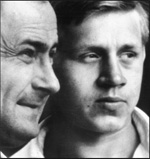
|
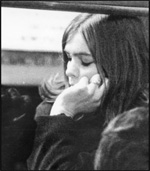
|
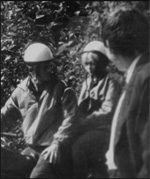
|
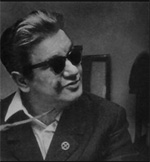
|
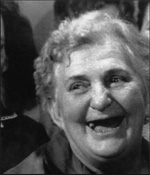
|
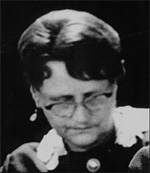
|
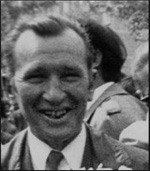
|
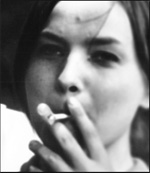
|
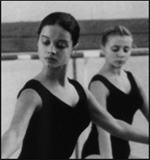
|
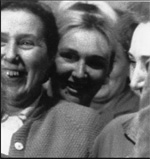
|
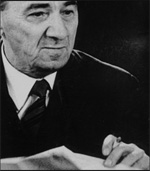
|
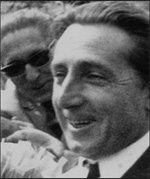
|
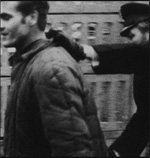
|
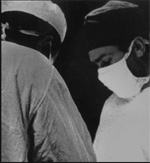
|
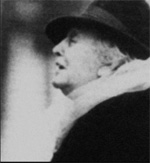
|
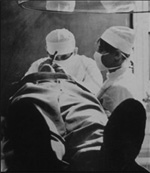
|
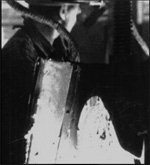
|
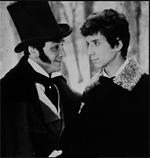
|
Excerpt of the graduation monography, under the guidance
of professor Jerzy Bossak, of the department of scenography
of Lodz Film School, 1968. Published in Film na swie no 3-4
pp. 388-389], 1992.
|
 |




